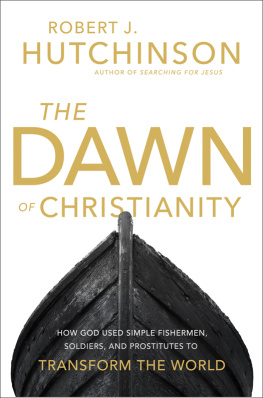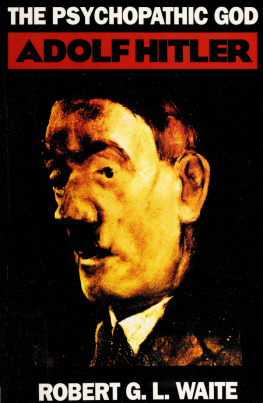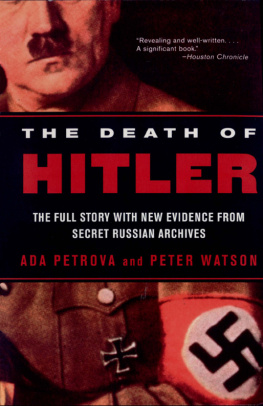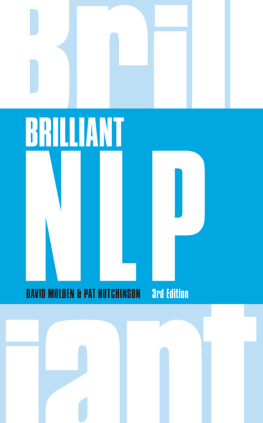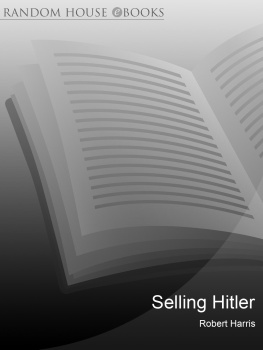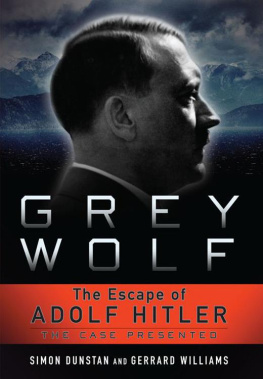Robert J. Hutchinson - What Really Happened: The Death of Hitler
Here you can read online Robert J. Hutchinson - What Really Happened: The Death of Hitler full text of the book (entire story) in english for free. Download pdf and epub, get meaning, cover and reviews about this ebook. year: 2020, publisher: Regnery History, genre: Non-fiction. Description of the work, (preface) as well as reviews are available. Best literature library LitArk.com created for fans of good reading and offers a wide selection of genres:
Romance novel
Science fiction
Adventure
Detective
Science
History
Home and family
Prose
Art
Politics
Computer
Non-fiction
Religion
Business
Children
Humor
Choose a favorite category and find really read worthwhile books. Enjoy immersion in the world of imagination, feel the emotions of the characters or learn something new for yourself, make an fascinating discovery.

- Book:What Really Happened: The Death of Hitler
- Author:
- Publisher:Regnery History
- Genre:
- Year:2020
- Rating:3 / 5
- Favourites:Add to favourites
- Your mark:
- 60
- 1
- 2
- 3
- 4
- 5
What Really Happened: The Death of Hitler: summary, description and annotation
We offer to read an annotation, description, summary or preface (depends on what the author of the book "What Really Happened: The Death of Hitler" wrote himself). If you haven't found the necessary information about the book — write in the comments, we will try to find it.
What Really Happened: The Death of Hitler — read online for free the complete book (whole text) full work
Below is the text of the book, divided by pages. System saving the place of the last page read, allows you to conveniently read the book "What Really Happened: The Death of Hitler" online for free, without having to search again every time where you left off. Put a bookmark, and you can go to the page where you finished reading at any time.
Font size:
Interval:
Bookmark:
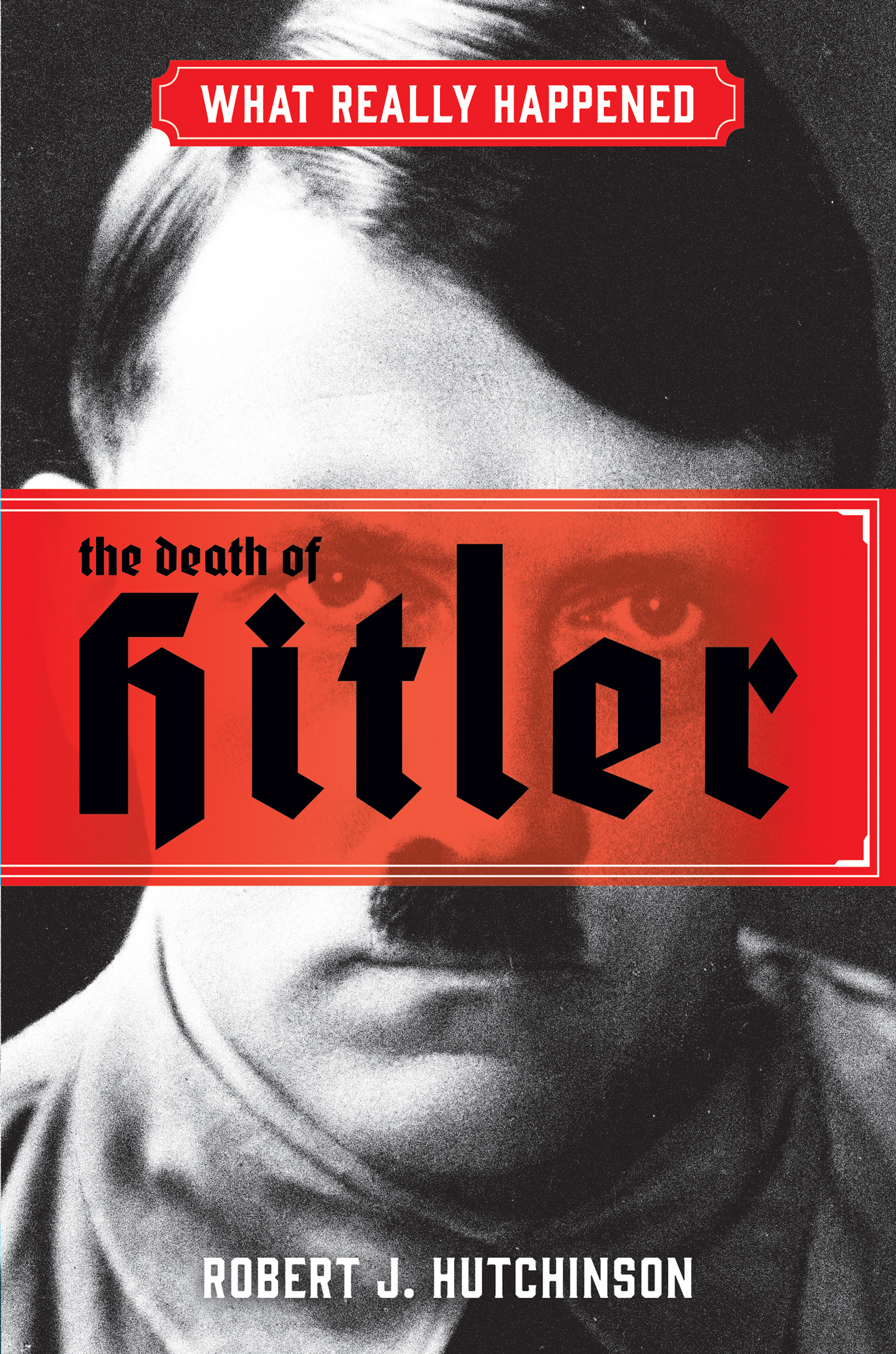

Praise for
WHAT REALLY HAPPENED: THE DEATH OF HITLER
Robert J. Hutchinsons What Really Happened: The Death of Hitler is by turns a historical account, a Cold War political thriller, and a forensic detective story all rolled into one. Hutchinson has an unerring sense of the important details while maintaining a dynamic and vigorous narrative throughout. What Really Happened: The Death of Hitler is a riveting summary of more than seventy years of myth, mystery, and misdirection about where, when, and how Adolf Hitler met his end.
DANIEL ALLEN BUTLER, author of Field Marshal: The Life and Death of Erwin Rommel
An excellent primer and clarifier on the circumstances of Hitlers death. Robert Hutchinson provides a well-written antidote to fake history.
ROGER MOORHOUSE, British historian and author of Killing Hitler: The Plots, the Assassins, and the Dictator Who Cheated Death
Praise for
WHAT REALLY HAPPENED: THE LINCOLN ASSASSINATION
Robert Hutchinson gives a fresh and comprehensive account of the well-known story of Abraham Lincolns assassination, putting it in a new light. Included are the plans gone awry, the what-ifs, and a journey deep inside the twisted mind of John Wilkes Booth, who called an audible that day and changed the course of history. If youre going to read one book about the Lincoln assassination, this is the one.
SCOTT RANK, author of Historys 9 Most Insane Rulers and host of the History Unplugged podcast
Copyright 2020 by Robert J. Hutchinson
All rights reserved. No part of this publication may be reproduced or transmitted in any form or by any means electronic or mechanical, including photocopy, recording, or any information storage and retrieval system now known or to be invented, without permission in writing from the publisher, except by a reviewer who wishes to quote brief passages in connection with a review written for inclusion in a magazine, newspaper, website, or broadcast.
Regnery History is a trademark of Salem Communications Holding Corporation
Regnery is a registered trademark of Salem Communications Holding Corporation
ISBN: 978-1-62157-888-8
eISBN: 978-1-62157-889-5
Cover design by Joshua Taggert
Library of Congress Control Number: 2020932917
Published in the United States by
Regnery History, an imprint of
Regnery Publishing
A Division of Salem Media Group
300 New Jersey Ave NW
Washington, DC 20001
www.Regnery.com
Books are available in quantity for promotional or premium use. For information on discounts and terms, please visit our website: www.Regnery.com.
For Kelly, Tim, Barney, Barry, and Kathleen
Rebellion against tyrants is obedience to God.
Benjamin Franklin
T he announcement, although longed for by much of the civilized world, was still a surprise when it came.
At 10:25 p.m. on May 1, 1945, German radio ceased the music it was playing, Bruckners Seventh Symphony. A stern announcers voice came on the air:
It is reported from the Fhrers headquarters that our Fhrer Adolf Hitler, fighting to the last breath against Bolshevism, fell for Germany this afternoon in his operational headquarters in the Reich Chancellery, the announcer intoned in German. On April 30, the Fhrer appointed Grand Admiral Dnitz his successor.
A moment later, the voice of Grand-Admiral Karl Dnitz, commander-in-chief of German forces in the north, came over the radio waves:
German men and women, soldiers of the armed forces: Our Fhrer, Adolf Hitler, has fallen, Dnitz declared. In the deepest sorrow and respect the German people bow. At an early date he had recognized the frightful danger of Bolshevism and dedicated his existence to this struggle. At the end of his struggle, of his unswerving straight road of life, stands his heros death in the capital of the German Reich. His life has been one single service for Germany. His activity in the fight against the Bolshevik storm flood concerned not only Europe but the entire civilized world.
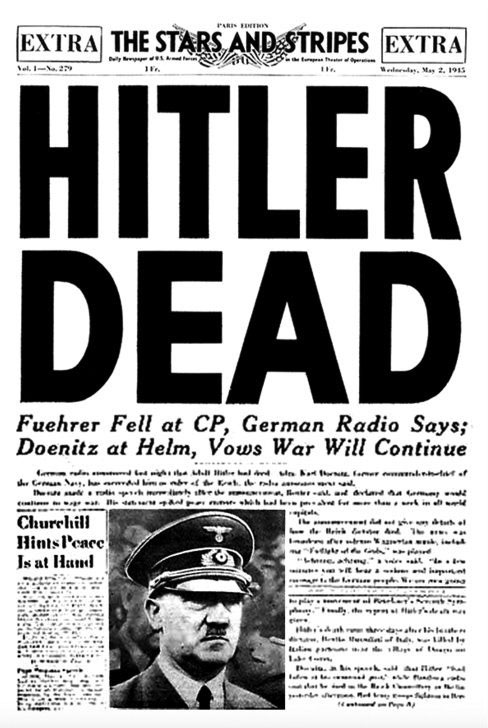
Based on Nazi radio reports, newspapers around the world featured enormous headlines stating that Hitler was dead, including this May 2, 1945, edition of the U.S. Army newspaper The Stars and Stripes. Wikimedia Commons
Then Dnitz repeated what the announcer had saidthat he was now the acting head of state. Dnitz asked for the German peoples confidence as he strove to save Germany from destruction by the advancing Bolshevist enemy. He promised his listeners that if we do all that is in our power, God will not forsake us after so much suffering and sacrifice.
The next day papers across the world broadcast the stunning news with banner headlines.
Der Fhrer Gefallen, reported the Hamburger Zeitung. Hitler Dead, the U.S. Army newspaper, The Stars and Stripes, blared in giant type that took up half the page.
Other papers mirrored the message, with a few noting that there was no actual evidence for this news aside from the claims of the Nazis themselves.
From the very first reports of Hitlers death, there was skepticism. The Nazis hadnt invented fake news, but they had certainly perfected it, and some newspapers were understandably hesitant to accept the reports at face value.
I still find it difficult to believe that Hitler is really dead, the Associated Presss Berlin correspondent Louis Lochner wrote. Hitler couldnt afford to accept unconditional surrender, so what may prove to be the legend of his meeting a heros death had to be staged. I still cannot escape the feeling that Hitler is some place where nobody expects him to be.
The problem was that no one in the West could investigate what really happened for quite some time.
Western Allied forces did not enter Berlin for almost two full months after Germany formally surrendered on May 8, 1945.
While the conquest of the city had been assigned to Soviet Russia at the Yalta Conference the previous February, U.S. and British commanders had wanted to push ahead anyway. British Field Marshal Bernard Montgomerys 21st Army Group was within striking distance of the city from the west, and there were plans for the U.S. Armys 17th Airborne Division, 82d Airborne Division, and 101st Airborne Division to seize the key Berlin airfields of Tempelhof, Rangdor, and Gatow.
But other Allied military leaders, including General Dwight Eisenhower, supreme commander of Allied forces in Europe, feared that Nazi forces might try to take up a redoubt in the heavily defended German Alps where they could delay the end of the war by months, perhaps even years. One of the biggest rumors of World War II was that the Nazis had built a vast, virtually impregnable underground fortress hidden in the Alps. But that wasnt the only reason American forces held off from seizing Berlin. Another American general, Omar Bradley, warned that it might cost a hundred thousand casualties to capture the capital in the face of desperate German resistance.
As a result, Eisenhower ordered Western Allied forces not to cross the Elbe and Mulde Rivers to the west of Berlin. Instead, the Western Allies would concentrate on southern Germany and on cutting off any resistance there, making sure German troops did not head into the mountains. The United States would let Stalin have Berlin.
Font size:
Interval:
Bookmark:
Similar books «What Really Happened: The Death of Hitler»
Look at similar books to What Really Happened: The Death of Hitler. We have selected literature similar in name and meaning in the hope of providing readers with more options to find new, interesting, not yet read works.
Discussion, reviews of the book What Really Happened: The Death of Hitler and just readers' own opinions. Leave your comments, write what you think about the work, its meaning or the main characters. Specify what exactly you liked and what you didn't like, and why you think so.

